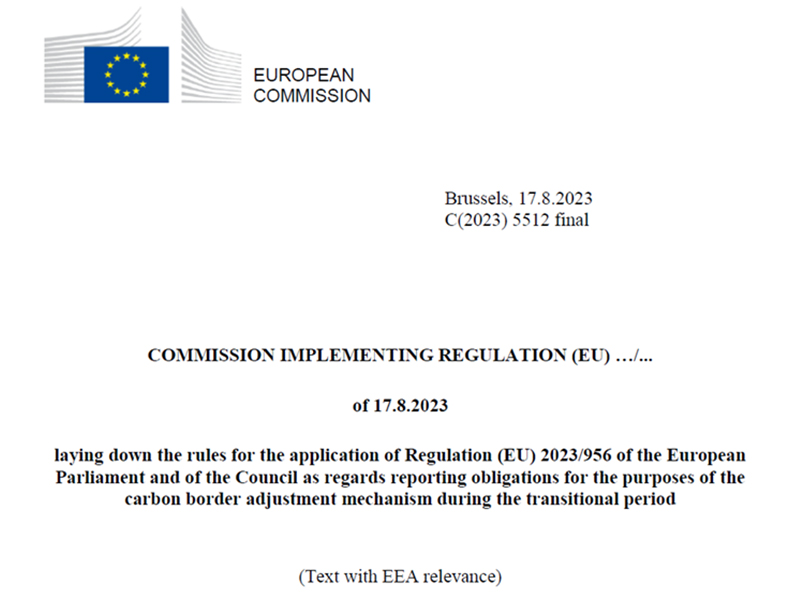In order to cope with the challenge of climate change, the EU and the US respectively proposed the Carbon Border Adjustment Mechanism (CBAM) and the Clean Competition Act (CCA) in 2022 and 2023, aiming to establish a carbon pricing system for imported products, to promote global emission reduction actions, protect the competitiveness of local enterprises, and avoid carbon leakage. Although these two schemes have different details such as the scope of taxation, the carbon price and calculation methods, they are based on the same logic: to make those products that emit more greenhouse gases in the production process bear higher costs, thereby encouraging producers to adopt more green and low-carbon technologies and methods.

CBAM is a regulation officially passed by the EU in May this year, covering industries such as cement, electricity, fertilizer, steel, aluminum and hydrogen. The transition period for CBAM implementation is from October 1, 2023 to December 31, 2025, and the CBAM implementation regulation issued by the European Commission on August 17, 2023 details the application rules for reporting during the transition period. During the transition period, enterprises only need to submit carbon emission reports for imported products, without paying any fees. But from 2026 onwards, enterprises will have to submit reports and pay carbon emission fees according to the reports. It is worth noting that from 2026 to 2034, the fees to be paid will gradually increase as the free quota of the EU carbon market decreases, until it is completely cancelled in 2034.
CCA is a bill proposed by US Senators Chris Coons and Lindsey Graham in September 2023, involving both imported and domestic products. It covers primary products of energy-intensive enterprises, such as oil, natural gas, coal, chemicals, etc., and involves upstream and downstream. CCA will set a baseline based on the average carbon content of US products, and start at $55/ton, increasing by 5% annually. CCA will charge additional fees to those enterprises that exceed the baseline or do not take sufficient emission reduction measures, and reward or subsidize those enterprises that are below the baseline or take positive emission reduction measures.
The introduction of CBAM and CCA will have a significant impact on global trade and industrial transformation. On the one hand, these schemes will increase the cost of imported products, which may lead to the risk of trade frictions, retaliatory measures or recourse to the World Trade Organization (WTO). On the other hand, these schemes will also promote countries to accelerate their low-carbon transition, strengthen supply chain management and optimization, and seek more sustainable and environmentally friendly business models. For those countries or regions that highly depend on the EU or US market, how to cope with the challenge of carbon tariffs, while seizing the opportunity of low-carbon development, will become an important issue for their future development.

